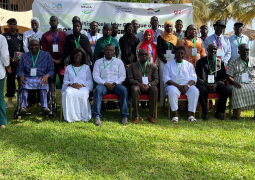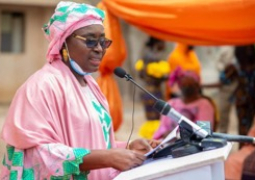
The closed-door meeting, according to officials, offers the private sector the opportunity to table issues of concern to them for government to address and ensure they continue to operate within a conducive environment.
In his remarks, Edrissa Mass Jobe, president for the Gambia Chamber of Commerce and Industry (GCCI), while expressing gratitude to President Barrow for being in attendance, reminded that the NBC has yielded a lot of results.
Jobe acknowledged the roles of the private sector in any society especially in employment creation, tax payment and contribution to social security.
The private sector, he said, is the engine for development, highlighting that majority of people employed in the country are employed by the private sector.
According to him, only 10 percent of working age Gambians are in formal employment while the private sector employs 90 percent of Gambians.
He indicated that the private sector pays about 41 percent of the country’s revenue through taxes, saying the sector contributes 50 percent of government revenue through non-revenue.
“The private sector is contributing about 46 million daily to government revenue. It also contributes about 70 percent of the funds in social security and housing finance cooperation.” he further stated.
He thus described the sector as a very important partner to government and that for the development of the private sector is dependent on the policies and actions of the government.
He pointed out that government therefore needs to address issues of regulations, trade facilitation, tourism, government and state land management, food and agriculture, export, forex, extractive industries, but also look at the issue of pensioner poverty as well as local content.
Commenting on inflation, Jobe reminded that as a country, most of the things it consumes are imported, citing that the cost of import might remain the same, but the biggest factor driving prices in the country is the depreciation of the dalasi which is not controlled by the business community.
He therefore called for the need to find mechanisms to export more, while also lamenting on the high cost of electricity in The Gambia.
This, he observed is has an impact on the country’s agriculture and industry. “It is the government that creates the environment that is conducive to businesses or not,” he concluded.
Read Other Articles In National News

PURA inspects telecoms infrastructure for regulatory compliance
May 10, 2022, 12:01 PM



